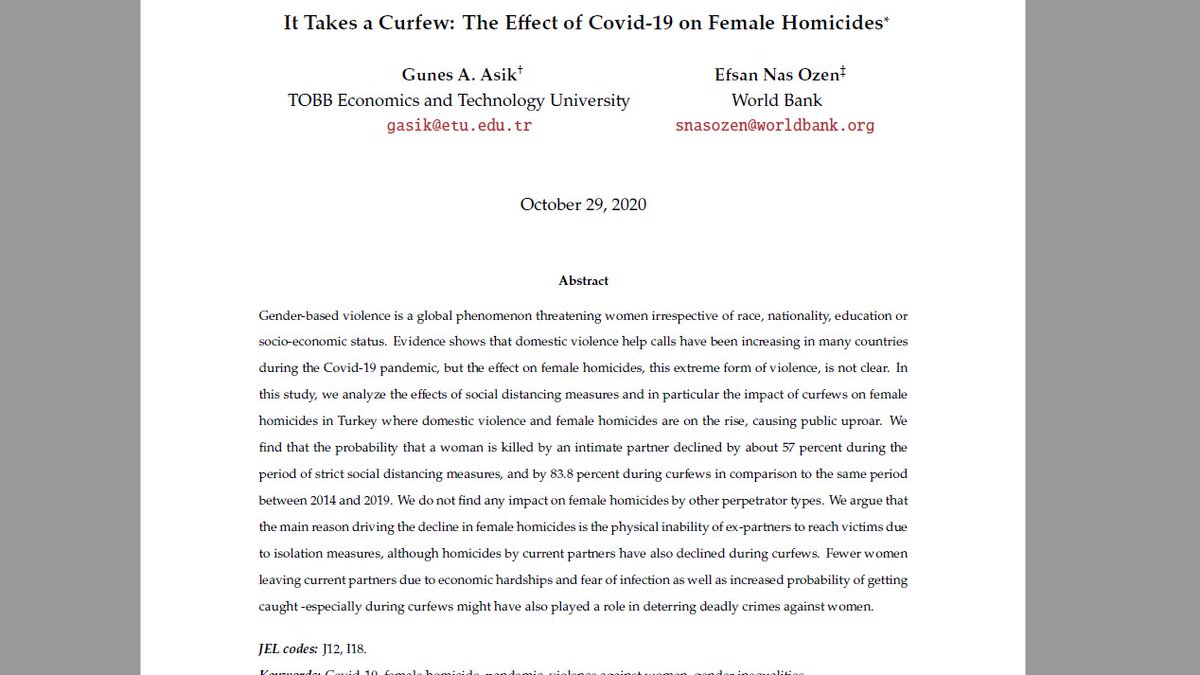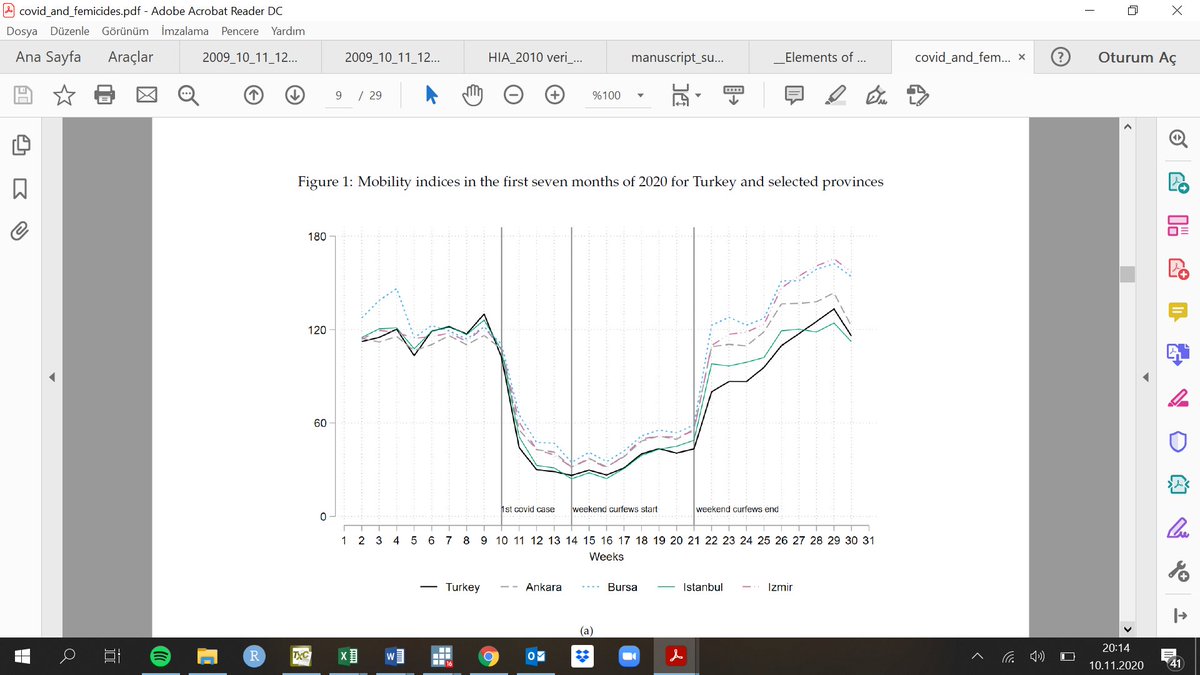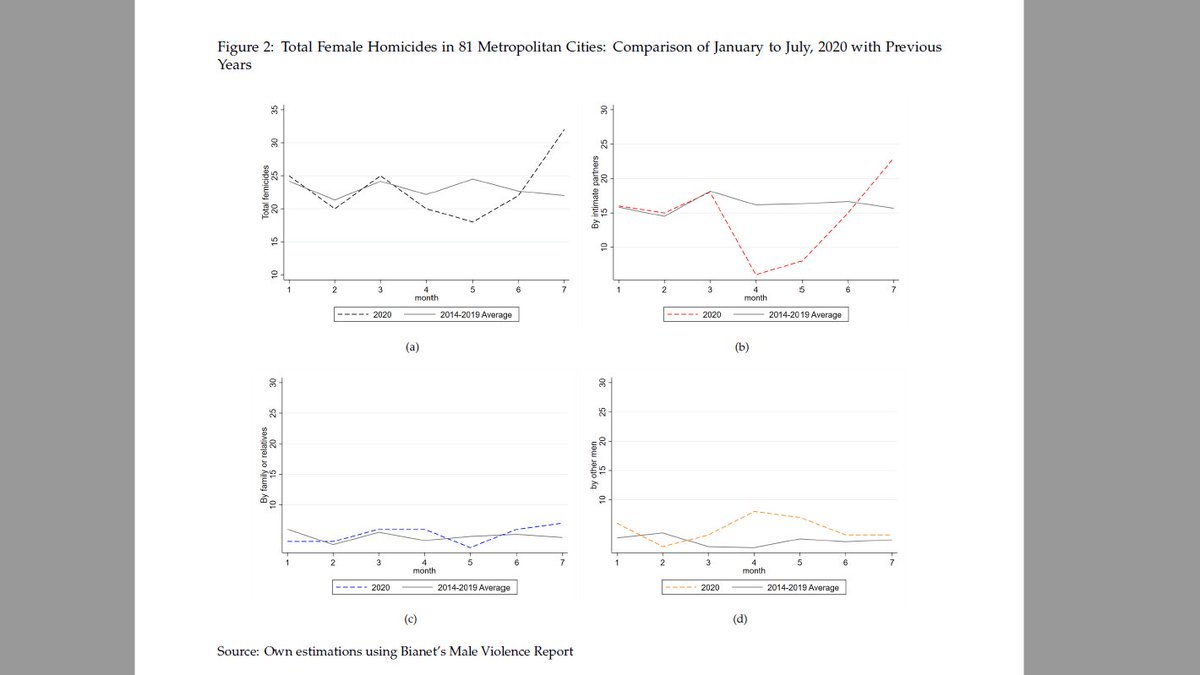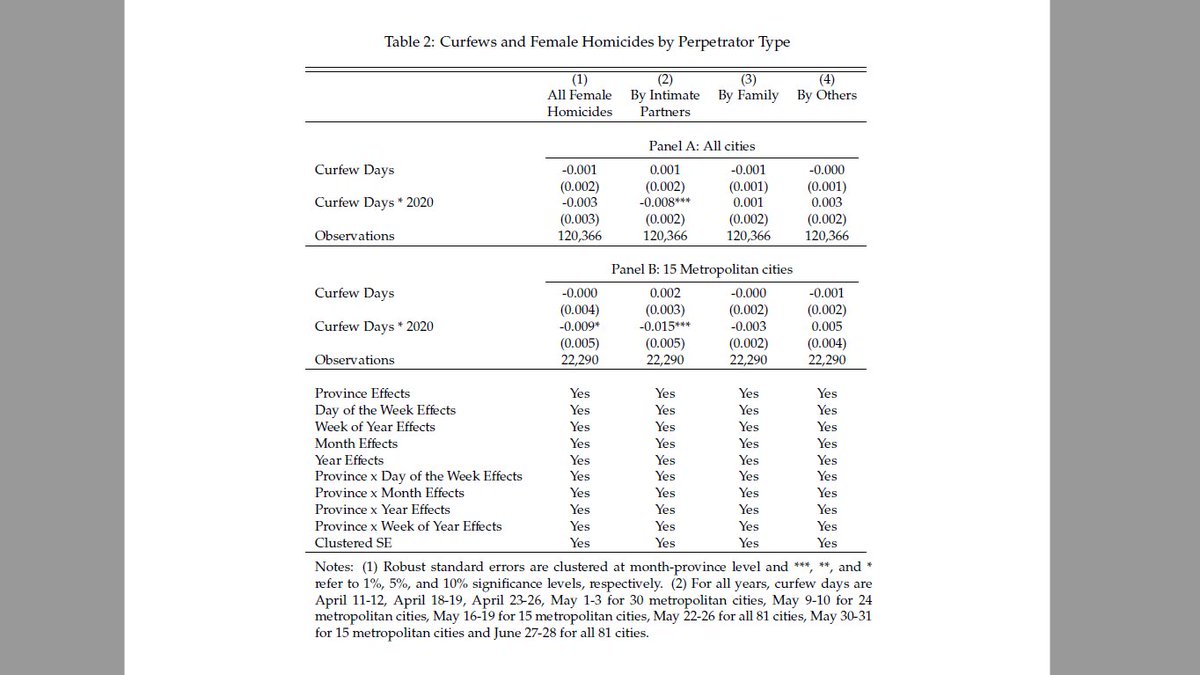 Working Paper Alert
Working Paper Alert . Thread: several studies show that domestic violence help calls has increased during the lockdowns. In fact @emilycleslie has a fantastic paper using data US data. But what happened to female homicides under social distancing measures and lockdowns? 1/n https://twitter.com/ProbCausation/status/1326184132779659276
. Thread: several studies show that domestic violence help calls has increased during the lockdowns. In fact @emilycleslie has a fantastic paper using data US data. But what happened to female homicides under social distancing measures and lockdowns? 1/n https://twitter.com/ProbCausation/status/1326184132779659276
With my coauthor @efsannas, we answer this question using a specific database called the "Male Violence Monitoring Portal" provided by @bianet. This database collects information on femicides on a daily basis and includes rich information on location and perpetrator type. 2/n
To our surprise, we find that female homicides by intimate partners declined substancially, as much as 83.8 percent in cities which were under strict curfews between April and June. 3/n
Turkey has the highest intimate partner violence and female homicide rates across all OECD members In 2019 alone, a total of 474 women were killed stirring public outrage. We first show that the trends in social mobility and femicides by partners are quite similar. 4/n
We then use event study and diff in diff to show that femicides by intimate partners declined substantially across all Turkey but especially in 15 metropolitan cities that subject to strict measures and regular curfews. We find no impact on femicides by other perpetator types.5/n
Our results are robust to several checks. But what is the mechanism? Main reason driving the decline in female homicides is the *physical inability of ex-partners to reach victims* due to isolation measures, although homicides by current partners also declined during curfews 6/n
In fact, a recent report by the Police Academy argues that ex-partner jealousy and conflict over children among separated/divorced couples impose greatest risk for women and suggests a non-negligible part of homicides take place on days when men arrive to see the children 7/n
The other (likely) mechanism is the associated police stops and identity checks during lockowns which dissuade potential perpetrators by increasing the probability of getting caught - a fear that would apply to perpetrators in and outside of the household alike 8/n
But make no mistake about it! Our results highlight the unsettling fact that *it is the physical inability to reach women, rather than the legal mechanisms* that prevent violence against women at risk during the pandemic! 9/n
A stronger commitment to Istanbul Convension on preventing and combating domestic violence could signal that perpetrators cannot get away with light sentences, and can save the lives of many more women when the pandemic is over, not only in TR but elsewhere in the world! 10/n
Here is the link to our paper; any comments and suggestions hugely appreciated https://www.dropbox.com/s/6ciyfjp1visq22j/covid_and_femicides.pdf?dl=0 And final word: we are immensely indebted to @ahmetkurnaz001 for collecting the femalde homicide data, without his help, we would not be able to pull this off. 11/11

 Read on Twitter
Read on Twitter





